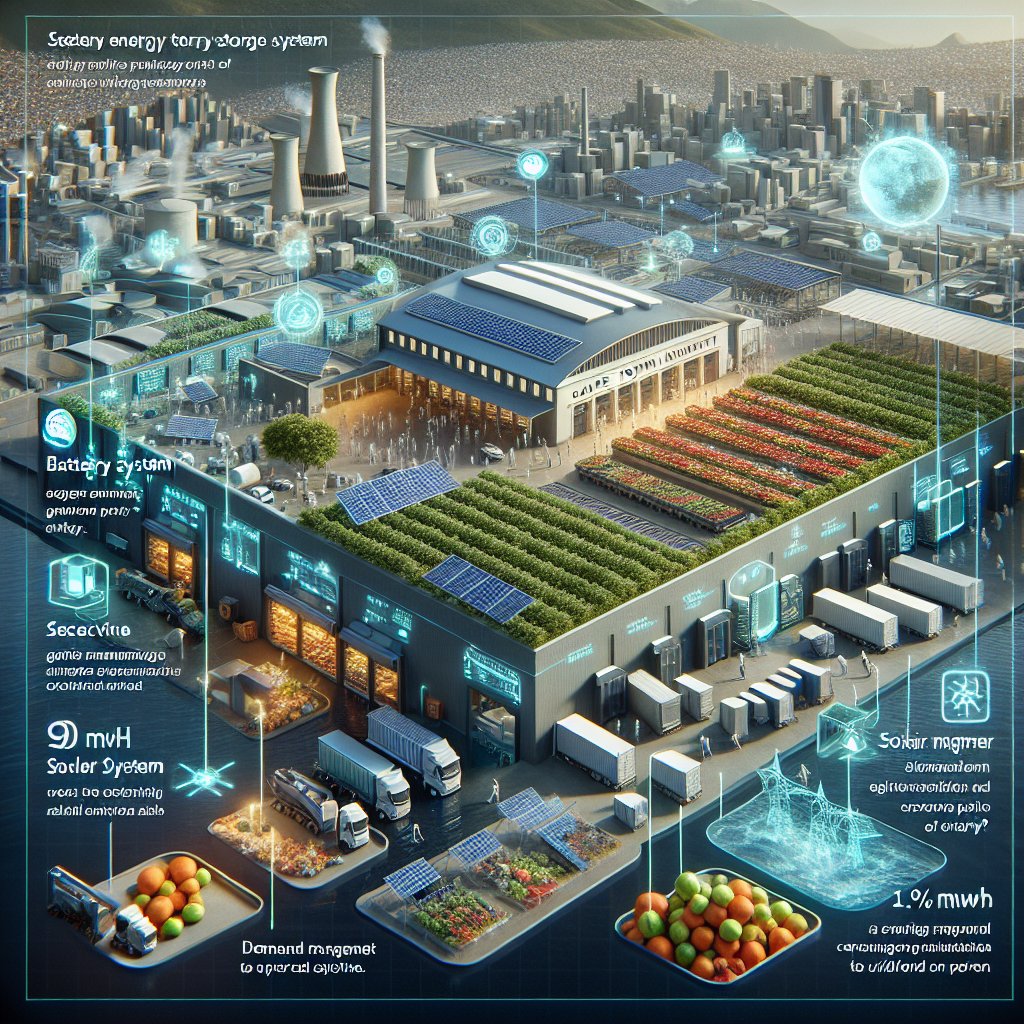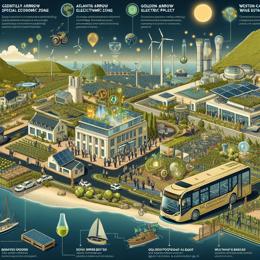Image created by AI
Cape Town Market Embraces Sustainable Energy with Innovative Battery and DMS Integration
The Cape Town Market, an integral player in South Africa's food security chain, is pioneering sustainability through the introduction of a state-of-the-art battery energy storage system and a Demand Management System (DMS). This green initiative comes at a critical time when energy security is a major concern for businesses across the country.
Commissioning of the notable 3 Megawatt-hour (MWh) battery system follows the installation of a solar panel array boasting a 1.4 MWh output. This setup not only secures a stable electricity supply amid loadshedding and peak demand scenarios but also augments the energy efficiency of one of the oldest and largest fresh produce markets in South Africa.
An intricate component of this installation – the DMS – ensures smooth and reliable power delivery, charging during periods of low demand or high solar production, and discharging when energy is most needed. The system is further bolstered by 1.4 Megavolt-ampere (MVA) standby generators that contribute to peak shaving duties when renewable options are inadequate.
The market's transition to green energy is made seamless with the inclusion of a programmable logic controller complemented by intelligent algorithms designed to optimize the flow of electricity. This automatic management guarantees efficiency and minimal intervention is required for the system's operation, signaling a remarkable advancement in the sector's movement towards sustainable technologies.
City of Cape Town's Economic Growth MMC, James Vos, highlighted the significance of this project for the Cape Town Market, which has served as a vital nexus linking over 5,500 producers and 8,000 registered buyers, thereby bolstering the city's food supply network. The implementation of the battery storage and DMS is poised to enhance the technological resilience of the market, ensuring uninterrupted quality in its products and services.
The commitment to environmental conservation does not end with energy sustainability. The Epping market shows its green credentials through impressive waste management practices, managing to divert about 90% of its waste from landfills. Further social responsibility is demonstrated as approximately half of the market's unsold produce is donated to "Food on The Table," a non-profit organization feeding over 100 community kitchens.
Owned by the City of Cape City and operated under lease by the private entity, Cape Town Market stands as a testament to eco-friendly progress within the urban commercial framework.










